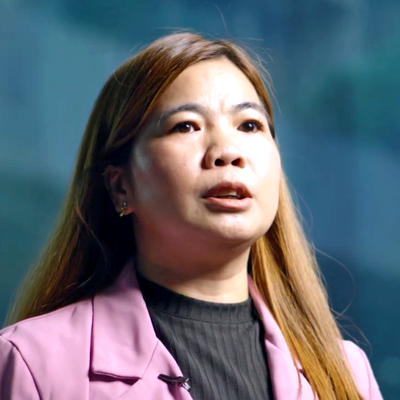
OVERVIEW
About this Programme
The Higher Diploma in Accounting and Finance equips students with comprehensive knowledge and skills in financial management, accounting principles, and business operations. The programme covers key areas such as financial reporting, management accounting, taxation, and corporate finance. Graduates will develop strong analytical and problem-solving abilities, preparing them for roles in accounting, auditing, and financial analysis or for further studies in higher education.
42% of the 2024 cohort earned distinctions
Unlock a UK degree pathway in just 16 months
Blended Learning: Face-to-face and Live Broadcast
Learn from expert educators and industry practitioners
MODULES
Designed to explore beyond subject knowledge
Principles of Management
The aim of this module is to provide students with an introduction to the principles and practices of management. Students will learn how to examine the nature of managerial work including strategy, operations and project management, control, ethics, structures and culture, organisational power, groups and teams, individual performance and stress, social responsibility and change management.
Quantitative methods
This programme introduces the basic concept of quantitative approaches to decision making. It introduces students to basic concepts of and methods of qualitative methods used by Management. Enables students to understand how to collate and present data, apply and range of statistical and operations research techniques.
Principles of Accounting
This module introduces students to the foundation and understanding of the principles and concepts of Accounting. Students will be exposed to the application of these accounting concepts in the preparation of financial statements for use by individuals, business, non-profit organisations and government institutions. Students will also be developing expertise in using these accounting principles and concepts in their analytical approach to financial problem-solving.
Principles of Economics
The module is an introduction to basic economic principles and concepts and how they apply to the business environment. It introduces students to the global economy and reviews both the national and the global market. It establishes the framework for future programmes by providing students with an overview of fundamental micro and macroeconomic concepts.
International Business Management
This module promotes an integrative understanding of international business issues, particularly in relation to how new businesses are established. Students will develop a critical understanding of major trends and issues in international business, evaluate how global firms analyse their business environment and develop an understanding of multi-disciplinary management.
Data Analytics
This module will introduce students to the concepts and methods of business information technology and its application to practical business situations. The goal is to help students to learn how to use and manage information technologies, conduct electronic commerce, improve decision-making, and gain competitive advantage in the marketplace. It therefore emphasizes on the role of Internet technologies as a technology platform for electronic business, commerce, and collaboration within and among corporations.
Cost Accounting
This module is the foundation to the understanding of the principles and concepts of Costing. Students will be taught the different principles, concepts, techniques, methods and systems of costing products and services. It also prepares the students for more advanced studies in Management Accounting.
Principles of Banking and Finance
The study of the Principles of Banking and Finance is to equip students with the working knowledge of the characteristics and roles of banks and other financial institutions. It discussed the regulation of financial institutions, the risks in banking and the main methods used for risk management. It also exposes the students to the Forex and Derivatives markets and the future of Money.
Taxation
The module will cover the Singapore Income Tax System as it applies to individual employees, investment income and business income. The module is structured to provide an excellent foundation in the core areas of tax likely to be encountered during the initial phase of tax experience and to prepare students for more advanced study in Taxation.
Auditing
Students will learn about the Regulatory Framework for the professional assurances services profession; the Professional Code of Ethics and Conduct for accountants, the auditing process which includes audit planning, review of internal control systems, compliance testing and substantive testing and finally reporting.
Corporate Finance
The study of Corporate Finance is to equip students with a working knowledge of the financial environment. Students will learn the tools and concepts needed for making financial decisions. The programme addresses the three main areas of Corporate Finance, namely, what long-term investments a corporation should take on; how should it finance its investments; and how should a corporation manage its everyday financial activities.
Financial Accounting
This module further develops students understanding of the principles and practices of financial accounting, so that they can appreciate the contribution it makes to the effective operation of a business. The module provides students with the knowledge and skills to help them apply current accounting standards, and critically appraise the underlying concepts and financial reporting methods. Provides an introduction to Corporate Governance.
Business Law
This module will provide students with the general knowledge and understanding of the fundamentals of business law in Singapore. It covers major topics discussed in business law programmes providing clear examples and simplified cases. The module contains many practical points and common clauses when drafting a contract.
Strategic Management
This module introduces the student to the theory and practice of strategic management, and the holistic way in which it draws upon a wide variety of managerial functions in its creation. It will provide students with an understanding of the key concepts, theories and process integral to the strategic management of organisations.
Management Accounting
The primary aim is to extend students’ understanding of the theories, techniques and practices of management and cost accounting. This module will familiarise students with both the theoretical role and purposes of management accounting and with all the major aspects of management accounting practice and will enable them to better understand the various techniques, and issues surrounding them, by which accountants provide useful information to assist managers with the activities of planning, controlling, decision-making and performance measurement and management within organisations.
Professional Practice
This module aims to develop students’ knowledge and understanding of aspects of accounting and auditing represented in professional practice in public accounting firms. Specifically, the module aims to provide students with an understanding of ethical reasoning as applied to issues in professional practice and business. Develop awareness of aspects of the development of the accounting profession.
Full progamme structure and learning outcomes
Get detailed breakdowns and learn about the advantages of learning with LSBF Singapore.
what to expect
Kickstart Your Carer in Accounting & Finance
Programme Aims
- Knowledge and skills that will enable them to follow a career in all areas of accounting and a wide range of careers in business and finance.
- To develop students’ competence and practical skills in accounting and finance.
- To provide students with the relevant knowledge and understanding of accounting and finance as it relates to the wider business context.
- To enhance understanding of the limits of their knowledge, and how this influences analyses and interpretations based on that knowledge.
- To support independent learners and acquire a range of transferrable skills.
Learning Outcomes
- Demonstrate knowledge of organisations, the external environment in which they operate and how they are managed
- Analyse strategic issues related to the subjects studied.
- Evaluate the appropriateness of different approaches to solving problems related to the subjects studied.
- Show an understanding of accounting and finance principles and practices in the context of their chosen specialisation.
- Apply theory to the solution of familiar and unfamiliar problems within the organisation,
- Demonstrate proficiency in quantitative methods and computing techniques and know how to use these techniques and methods effectively across a range of problems
Skills you will acquire

$92,000+
median Singapore salary for Accounting
483,000+
Singapore job openings in Accounting
75%
of graduates report positive career outcome
programme structure
Assessment, graduation and awards
Assessments Profile
Assignment/Class test: 50%
Final Exam: 50%
Student must achieve an overall passing grade of 40%. If students fail to achieve an overall passing grade of 40%, students will be permitted one retake attempt in each failed assessment and failure of this retake will require students to re-module the failed module(s) again in full prior to additional retake attempt.
Graduation and Awards
Students must complete and pass all required modules in this programme to receive a Higher Diploma in Accounting and Finance certification.
Students who are for any reason unable to complete the Higher Diploma and who have successfully passed a minimum of 8 modules are eligible for an Exit Award of a Diploma in Accounting and Finance.
Attendance requirements
International Students: 90%
Local, PR, non-student pass: 75%
Teacher student ratio
1:120
STUDENT SUPPORT SERVICES
Why choose LSBF for your education
Study Materials
Students will receive study materials after they have made full payment for their programme. Replacement of study materials is subject to additional charge.
Student Portal
Students have access to the Student Portal. It is a useful site where the programme information and learning materials are available for students’ easy reference.
Accessible Faculty
Students may contact their lecturers directly via email outside the lecture hours for any academic related queries.
Recorded Lectures
We will show compassion and care to all stakeholders as we believe the journey is as important as the outcome.
ELIGIBILITY
Who can apply for this programme
Local/International Students Entry Requirements
Minimum Academic Requirement:
- Two passes in GCE A Level Examinations; OR
- Completion or equivalent High School qualification (12 years); OR
- Pass in appropriate Foundation/Certificate programme; OR
- Other appropriate qualifications
Minimum English language Requirement:
- Achieved a Grade C6 or better in the English Language at the Singapore GCE ‘O’ levels; OR
- IELTS 5.5/TOEFL 550; OR
- LSBF PCE Upper Intermediate
Minimum Age
18 years old
Mature Entry Route
Students with minimum age of 21 plus work experience (2 years minimum) will be assessed on a case-by-case basis.
TUTION FEES (inclusive of GST)
SGD $12,818.40
(local students)
SGD $15,340.74
(international students)
FAQs
What career opportunities are available after this diploma?
You’ll be ready for roles such as accounts executive, audit assistant, finance officer, or tax associate—positions widely available in SMEs, accounting firms, and financial institutions in Singapore.
What can I study after this diploma?
You can progress to the University of Greenwich’s BSc (Hons) in Accounting and Finance or Manchester Metropolitan University’s Bachelor of Science (Honours) Banking and Finance, depending on your academic goals and exemptions.
What if I’m unsure about continuing in accounting and finance?
That’s okay. Your skills in budgeting, reporting, and analysis are transferable to business, data, or operations roles—fields you can explore with additional study.
Is there financial support available for this programme?
Yes, LSBF’s diploma programmes are eligible for UTAP (Union Training Assistance Programme) funding. NTUC members can receive 50% course fee support, capped at S$500 per year. To apply, submit your UTAP application through the NTUC website within 6 months of completing your course. You can also learn more via e2i.com.sg.
How do I get started?
Reach out to our expert education consultants at +65 6580 7700 or visit us at 80 Robinson Road, #01-00, Singapore 068898. We’re here to help you plan your next step.




















